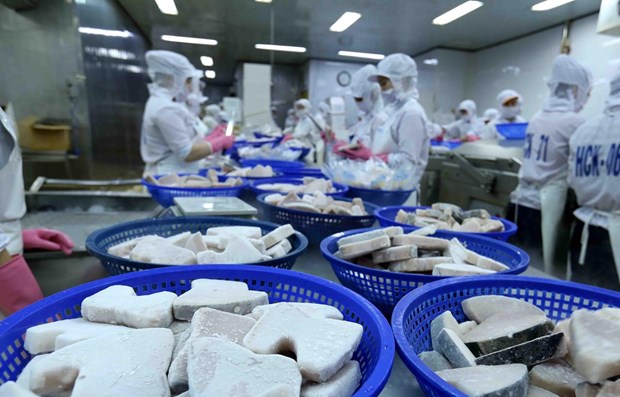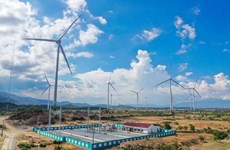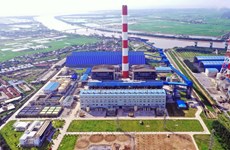Seminar discusses Vietnam-US trade ties in new context
Trade relations between Vietnam and the US will continue expanding but will also be affected by challenges in the future, heard a seminar in Hanoi on November 14.
 A tuna processing line at the factory of the Binh Dinh Fishery JSC in Binh Dinh province (Photo: VNA)
A tuna processing line at the factory of the Binh Dinh Fishery JSC in Binh Dinh province (Photo: VNA)Hanoi (VNA) – Trade relations between Vietnam and the US will continue expanding but will also be affected by challenges in the future, heard a seminar in Hanoi on November 14.
Opening the event, Assoc. Prof. Dr. Cu Chi Loi, Director of the Institute of American Studies under the Vietnam Academy of Social Sciences, said since Vietnam-US relations were normalised in 1995, bilateral trade ties have been growing.
The US is a major trade partner of Vietnam, he noted, adding that Vietnam’s shipments to the American market are rising, with the US becoming Vietnam’s biggest importer at present.
Talking about the US foreign policy and its impact on Vietnam, Dr. Nguyen Thi Hai Yen from the Institute of American Studies said the US highly values Vietnam’s role in its Indo-Pacific Strategy as Vietnam has an important geographical and strategic location in the connection of the two oceans.
The administration of US President Donald Trump attaches great importance to enhancing cooperation in politics, diplomacy, economy, defence and security with Vietnam, Yen said.
She added that the Indo-Pacific Strategy will generate many opportunities as well as challenges for Vietnam since competition in the region is entering a new phase that is more complicated, and risks of friction among big countries increases.
Regarding the prospects of Vietnam-US trade relations, Dr. Le Thi Van Nga, another expert from the institute, said bilateral trade ties will keep developing with both exports and imports rising. However, they will be affected by the US’s trade policy that aims to protect domestic producers, as well as by other challenges in the future.
At the seminar, participants stressed the new context is posing considerable challenges to Vietnam during its integration into the world and promotion of economic ties with the US.
Therefore, Vietnam should perfect legal regulations on foreign trade, improve human resources’ capacity, reform production process by importing advanced technologies, and seek new export destinations to reduce dependence on certain large markets, they said./.











